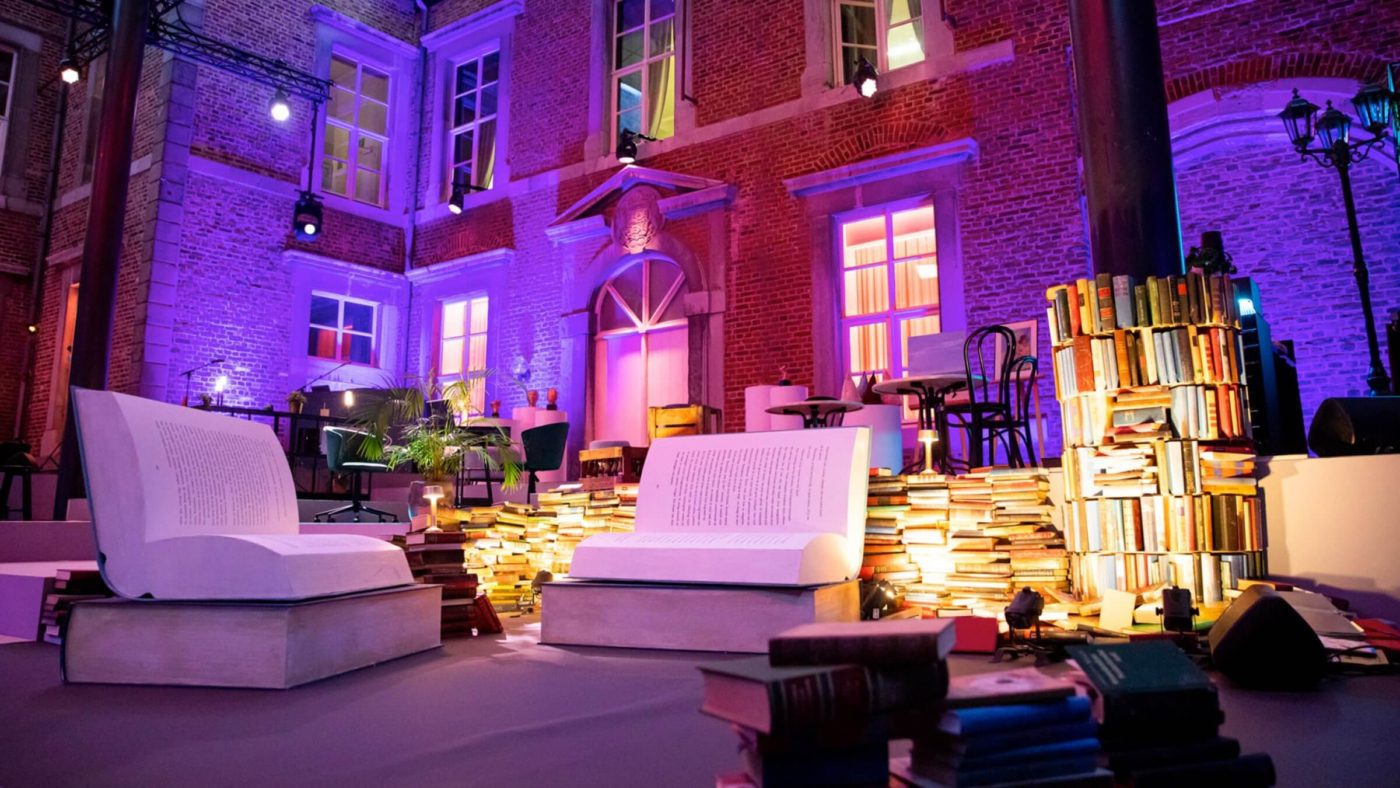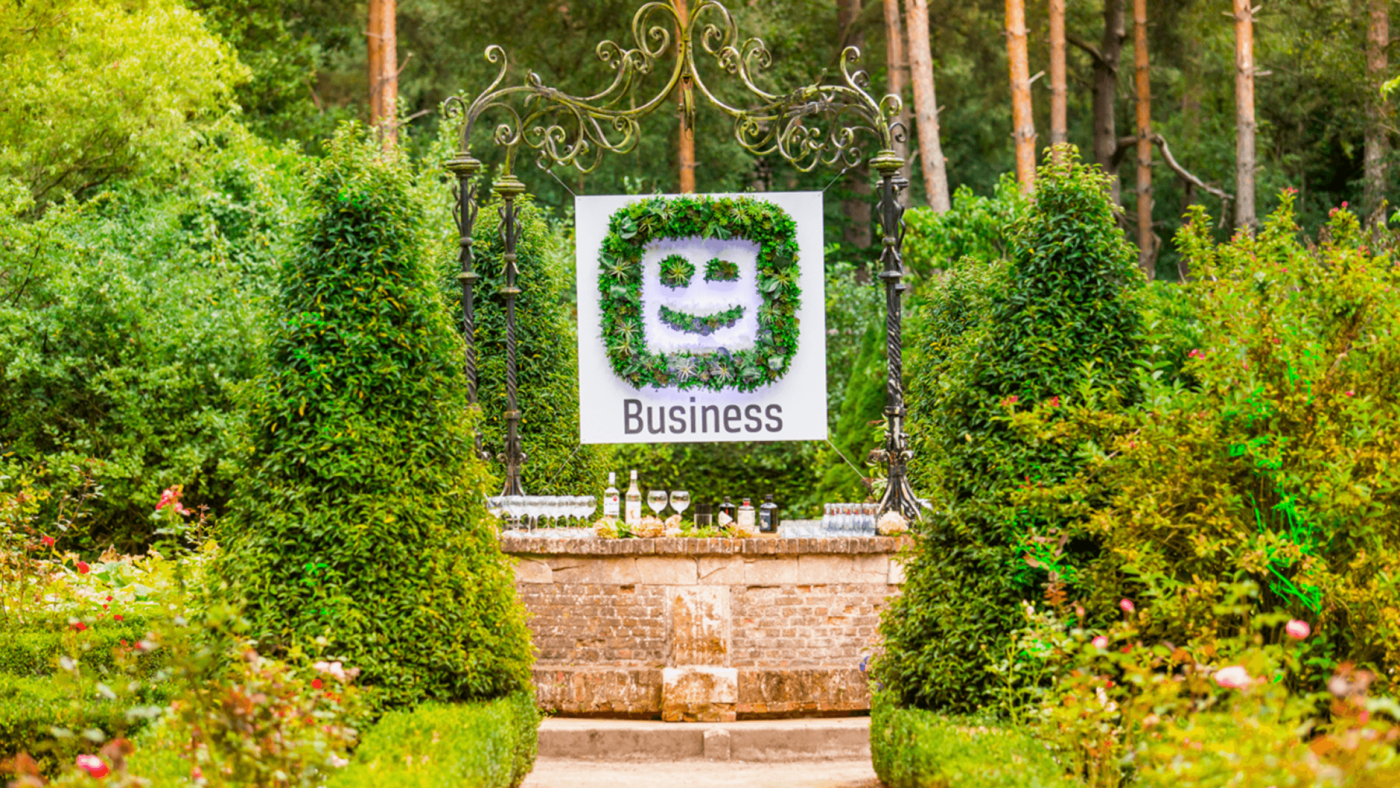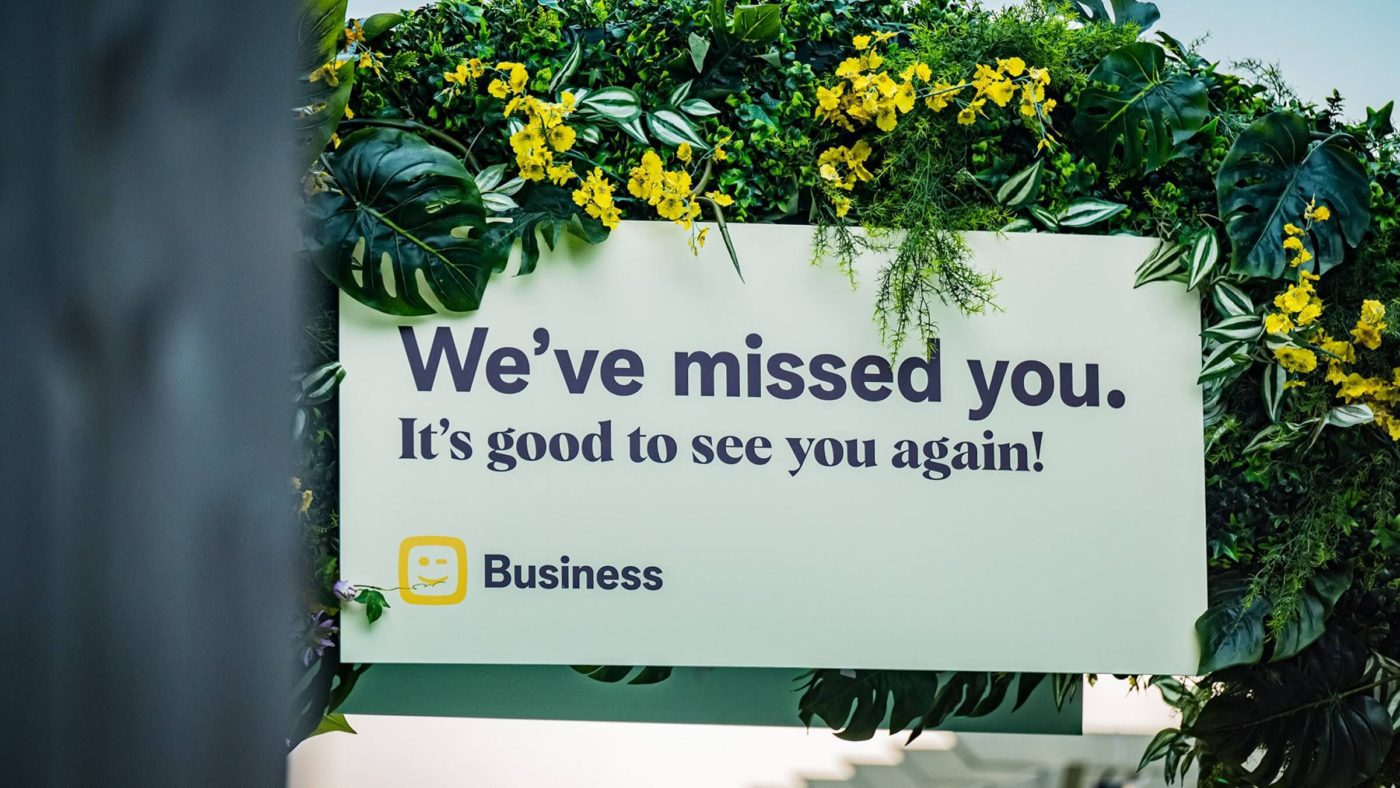“Storytellers are the best listeners”
Storytelling is one of those buzzwords from over 10 years ago that keeps popping up. And rightly so. And hopefully for a long time to come. Because although I don’t like buzzwords – can we please just call the ‘co-creation session’ a ‘brainstorm’ again? – I do find the concept behind storytelling very worthwhile. I would even call it a crucial skill that should not be limited to traditional ‘storytellers’ like writers and screenwriters. Think of people in education, managers and… event managers.

As for the latter, Sylvester is blessed beyond measure with a very strong team. No one doubts the need for storytelling. Recently, our storytelling skills have been put to the test a bit as we were confronted with other forms of events : online and also hybrid.
Fortunately, there are a lot of similarities in terms of storytelling between physical, hybrid and online events. This division is obviously a sliding scale with three points of reference: physical events are events where we primarily work on the experience of a live and physically present audience. Online events can also have a physical audience, but their experience is secondary to that of the online audience. The physical audience is there for atmosphere creation at most. Finally, with a hybrid event, there is a double focus: we go for an optimal experience for both the physical audience and the online audience.
NOW THIS IS A STORY ALL ABOUT HOW
The most obvious similarity when it comes to storytelling is the absolute need for a story. Without a story, no event. Or at least none worth attending. Doesn’t matter whether it’s online, hybrid or physical. Only when there is a story available we can start. And the rule of thumb in that building of a story also remains true for any event format. As simple as old and also brilliant : beginning, middle and end. On this super-simple basis, it’s easy to create a story. Another clear similarity in storytelling at the various events is the added value of the completely integrated story. If the story is also woven into the pre-event process, the branding, the choice of host & guests, the look & feel, the videos, the catering (either centrally or via home delivery), the music, etc., then the event and the visitor are really immersed in the story and it becomes a total experience.
But how do you start storytelling for an event? Not by telling a story. But by listening. And especially asking lots of questions, and then listening even more. Asking clients hundreds of questions about what the message is they want to tell, who their target audience is, what experience they want to give their guests and what they want the guests to get out of the experience. Good listening is the crucial start to a good story.

ATTENTION SPAN
Once the narrative starts to become clear, then the narrative form needs to be thought about. And that does differ greatly from physical over hybrid to online events. With online events, experience is partly exchanged for efficiency. People exchange the pleasure of catering, live music, physical contact, etc. for fast and structured information gathering. The storytelling must be tailored to this: short and to the point.
The attention span of guests for a story at an online event compared to a physical event is much shorter. At a physical event, you can take two hours or even longer to tell the audience a story in detail (ideally, of course, with lots of variety between speakers and performances and videos etc.). With an online event, this is much more difficult. Online events are usually experienced via a computer screen, and people are used to seeing mini-stories of one to say five minutes via that screen : bite-sized chunks that pop up in a social media feed, on YouTube or via some other channel. So to keep guests captivated in front of their screen, the story needs to be told for a shorter period of time, and the parts themselves need to be much more compact and varied.

SHORT & TO THE POINT
Think of it this way: a keynote speaker at a physical event talking for 45 minutes does not deter, and might even be perceived as short. But the chances of watching a video online of someone speaking for 45 minutes are rather small: there, the story has to take a different form.
This different sensitivity to duration is also there when using video. Showing a 7-minute video at an event with a seated – and thus almost literally ‘captivated’ – audience poses no problem. That same video during an online event would end up with the equivalent of a half-empty room.
This also has to do with the reality that online events have to contend with numerous other temptations and distractions… Guests are bombarded with pop-ups of e-mails, there are messages or calls on your smartphone, colleagues who come to the office to ask for something, or the children if he/she is working from the home office. No matter how engaging the content you tell, the reality is that your guest will be distracted tremendously quickly. The narrative form at online events must be tailored to this: short, powerful sequences, lots of variety, strong messages and preferably as much interaction as possible so that the event demands attention again and again.

STORYTELLERS ARE SNEAKY
For all events, storytelling is essential, but it should not always be too obvious. Not every event needs to confront its guests with a dramatic storyline and a main character who overcomes a conflict to finally face a blissful sunset… But for the event creator and the client, it does need to be clear what story is being told. Guests who get the right feeling from an event and remember the right message may not always realise that they were included in the organiser’s story, but it’s true. So storytellers are not only good listeners, but also sneaky ones.
Apart from physical and online events, a hybrid event is an outsider when it comes to storytelling. Providing the same experience to physical attendees as to online guests is impossible. Giving them an equally valid experience is possible. Telling the same story to both types of audiences creates a common experience. But to give an optimal experience, the story is delivered in 2 different ways : one following the rules of an online event, the other in the way for a physical event, and only at a few moments do the two types of audience overlap and make a connection. It’s a story with 2 tracks intersecting at certain moments.

WHAT STICKS
Finally, why all this focus on storytelling? Why strive for good storytelling? A story makes the difference between something you just ‘undergo’ and something you experience emotionally. Facts and figures are generally often forgotten, but an atmosphere, a feeling and especially a story are much better remembered. It makes an event memorable. Besides, those facts and figures still stick, as long as they are wrapped in a story. The story ensures greater involvement and, in the best case, also ensures that guests are touched on an emotional level so that the message sticks much better, which is after all the ambition.